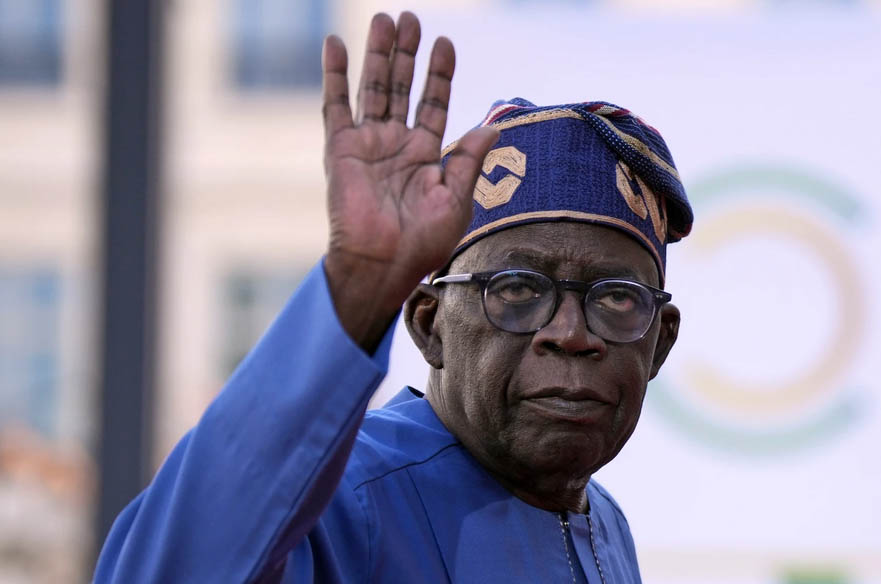ABUJA, Nigeria — Nigeria’s leader on Sunday called for an end to mass protests over economic hardship, saying the rallies have turned violent and blaming “a few with a political agenda” for driving them.
The protests, which began Thursday, have been accompanied by reports of looting and vandalism, as well as accusations that security forces have used excessive force.
Amnesty International has reported the deaths of nine protesters in clashes with police, while another four were killed by a bomb. The Nigerian police denied the Amnesty report.
“I have heard you loud and clear,” President Bola Tinubu said in his first public remarks on the demonstrations.
“I understand the pain and frustration that drive these protests, and I want to assure you that our government is committed to listening and addressing the concerns of our citizens.”
But, he said, “a few with a clear political agenda to tear this nation apart” would be resisted by security forces.
The protests reflect frustration with the worst cost-of-living crisis in a generation and accusations of misgovernment and corruption in Africa’s most populous country, a top oil producer where public officials’ huge earnings contrast with high poverty and hunger levels.
Tinubu’s aides have said the protests are politically motivated. His election last year was disputed by the opposition, after he won with 37% of the vote, the smallest margin of any Nigerian president ever.
The election also recorded the lowest turnout since 1999, when the country returned to democracy.
The protesters have also been inspired by other young people in Kenya who held rallies last month to oppose a planned tax hike.
The Nigerian leader said that his government “will not stand idly” and allow the looting reported in the past days to continue.
“Under the circumstances, I hereby enjoin protesters and the organizers to suspend any further protest and create room for dialogue,” he said.
The military has also threatened to intervene to quell violence.
Tinubu defended the audacious reforms that were supposed to save the government money and shore up dwindling foreign investment, but whose immediate impact has added to hardships.
The reforms, including the suspension of decades-old gas subsidies and currency devaluation, have had a knock-on effect on the price of just about everything else because they’ve been poorly implemented, analysts say.
“The economy is recovering; please, don’t shut out its oxygen,” Tinubu said.
In a region that has witnessed rampant military coups off the back of popular discontent with democratically elected governments, the Nigerian leader warned the protests could also threaten the country’s democracy.
“Forward ever, backward never!” he said.
















